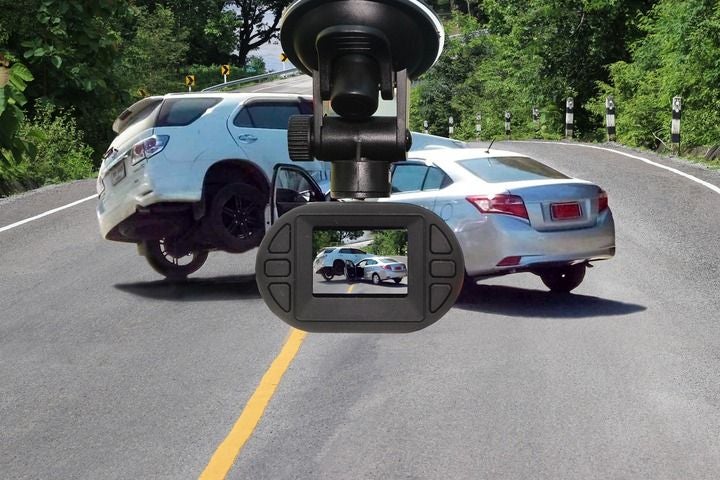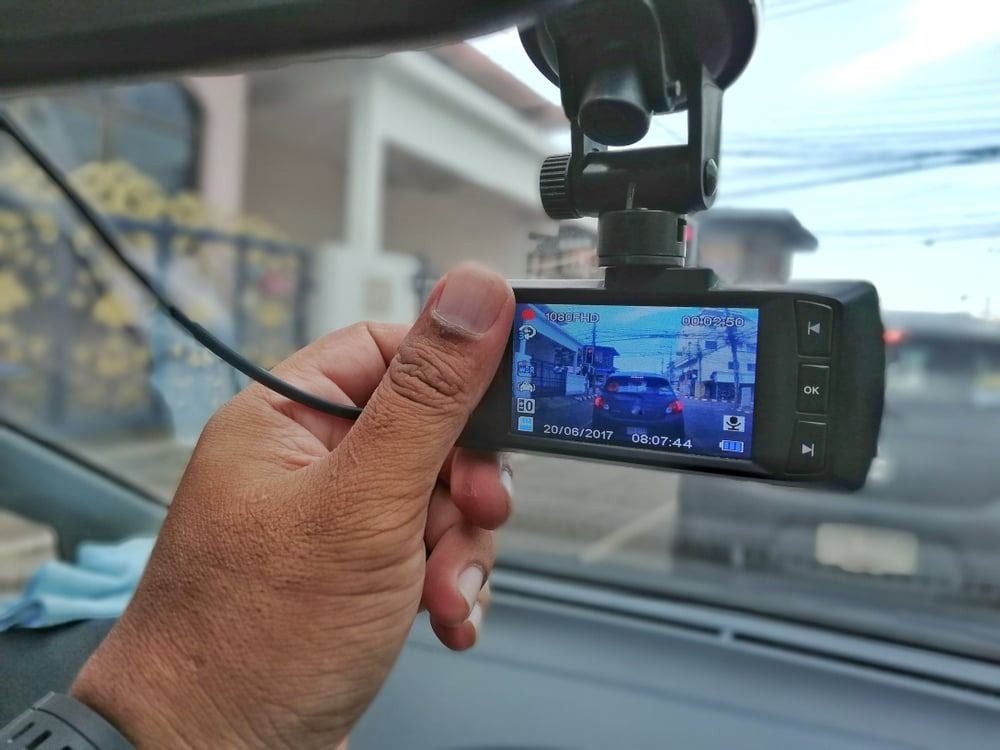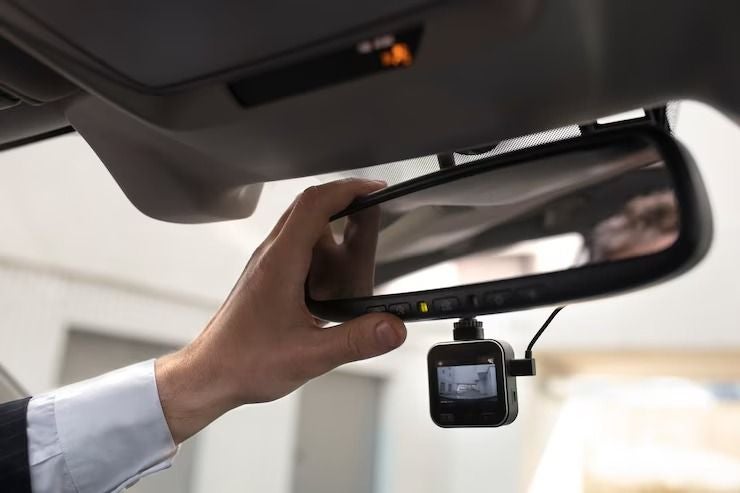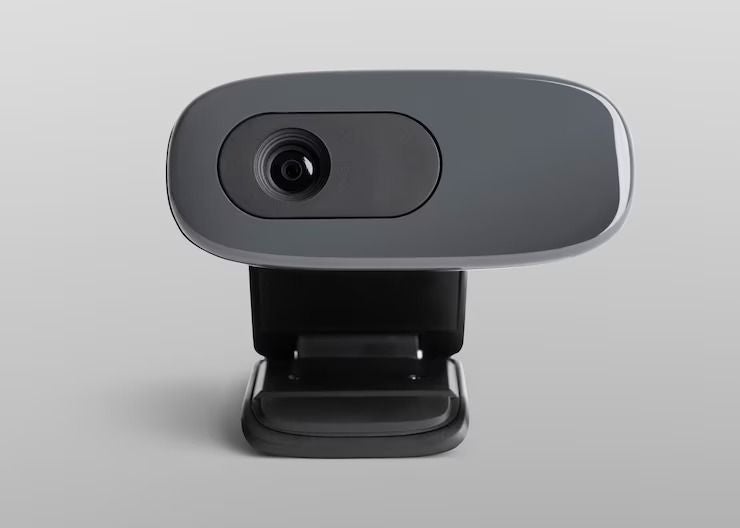It's a sunny Friday afternoon. You're done for the week. No meetings to attend and no PowerPoint presentations to make. With your favourite playlists and a basket full of hearty sandwiches, you're headed to a therapeutic weekend getaway, driving away from the chaos and commotion of the city streets.
Suddenly, another car swerves into your lane and hits you, causing a nasty collision. The next thing you know, you're standing on the side of the road, exchanging insurance information with the other driver. But what if you had a way to prove that it wasn't your fault? That's where a dash cam comes in.
Driving on the road can be unpredictable, and accidents can happen in the blink of an eye. That's why many drivers are now turning to a car video camera or dash cam for added security and peace of mind. In today's blog, we'll explore the various dash cam uses and benefits of dash cam, with a special focus on some of the advantages of using a dash cam.
Read More : Tips on How to Effectively Use Your Car AC this SUMMER!
What Is a Dash Cam?

A dash cam is a small video camera that is mounted on your car's dashboard or windshield. It is a camera that comes equipped with a broad range of features and specifications and is used to record everything that happens in front of your vehicle while you are driving. Some dash cams even can record audio and video inside the car, making them more detailed and versatile.
In India, dash cams have become increasingly popular among drivers over the last few years. These cameras provide added security and peace of mind on the chaotic and unpredictable roads of our country. With footage of an accident, drivers can easily prove who was at fault and protect themselves from fraudulent claims. Dash cams have also been proven to reduce insurance costs and can even deter potential car thieves and miscreants.
Some dash cams come equipped with a host of advanced features, such as built-in GPS, which can track your location and speed, and even help save you from falsely issued speeding tickets. Others have sensors that can detect sudden impacts or movements, and automatically start recording.
So, whether you're a seasoned driver or a newbie hitting the roads for the first time, a dash cam is a worthwhile investment and can turn out to be one of your best friends on the road. It provides an extra layer of protection and can potentially save you thousands of rupees in the event of an accident.
Read More : What is the Difference Between Car Wax and Polish? Explained
How Does A Car Dash Cam Work?

Now that you know what a dash cam is, have you ever wondered how it works? If you have, you're in luck, because now we will explore the inner workings of these nifty little devices and explain how they capture footage of the road ahead.
Here are some of the elements that comprise a dash cam and a breakdown of the process behind how these devices work:
1. Power source
A dash cam is typically powered by your car's cigarette lighter or USB port. Some models can also be hardwired into your car's electrical system for a more permanent installation.
2. Recording
Once the dash cam is powered on, it begins recording footage of the road ahead. Most dash cams have a loop recording feature, which means that they will record continuously, overwriting the oldest footage once the memory card is full.
3. Sensors
Many dash cams have built-in sensors that can detect sudden movements or impacts. When an impact is detected, the dashcam will automatically save the current recording and create a separate file for that specific event.
Read More : All About Fancy Number Plate For Cars
4. Storage
Dash cams use a memory card to store the footage they record. The size of the memory card will determine how much footage can be recorded before the oldest footage is overwritten. Some dash cams also have built-in storage, but this is typically limited.
5. Viewing
To view the footage captured by your dash cam, you simply remove the memory card and insert it into your computer or a compatible device. Some dash cams also have built-in screens, allowing you to view the footage directly on the device.
Features And Functions Of Dash Cam

By now, we're certain that you understand what a dash cam is and how it works. It's time to explore some of the features and functions of a dash cam. It is a device that can provide numerous benefits to drivers, including evidence in accidents, protection against fraud, monitoring driver behaviour, and parking security. Now, we will explore each of these features and functions in a little more detail:
1. Evidence In Accidents
Dash cams can provide valuable evidence in the event of an accident, allowing drivers to prove who was at fault and potentially save thousands of rupees in insurance costs. The footage captured by a dashcam can also be used by law enforcement to investigate accidents and prosecute reckless drivers. Some dashcams even have advanced features, such as GPS tracking, that can provide additional data about the location and speed of the vehicle at the time of the accident.
Read More : How to Check Used Car Engine Condition
2. Protection Against Fraud
In India, fraudulent insurance claims are a common problem. A dash cam can provide proof of the circumstances surrounding an accident, protecting drivers from false claims. Dash cams can also deter potential fraudsters, as the presence of a camera can make them think twice about making a false claim.
3. Monitoring Driver Behaviour
Some dash cams come equipped with sensors that can detect sudden movements or impacts. This can be used to monitor driver behaviour, alerting drivers to dangerous driving habits such as harsh braking or sudden acceleration. Additionally, they also have built-in screens that display speed and other information, allowing drivers to monitor their driving habits and make adjustments as needed.
4. Parking Security
Many dash cams have a parking mode, which allows them to continue recording even when the car is parked and the engine is off. This can provide added security against vandalism or theft, as the footage captured by the dash cam can be used to identify and prosecute perpetrators. Some dash cams even have motion sensors that can detect movement around the vehicle, triggering the recording function and capturing footage of any potential perpetrators and miscreants.
5. Insurance Discounts
The footage captured by a dashcam can help insurance companies accurately assess and reduce fraudulent claims, potentially leading to lower insurance premiums.
6. Capturing Road Trips
Dash cams are not just for accidents and security. They can also be used to capture memorable road trips and scenic drives. Some dash cams come equipped with high-quality cameras that can capture stunning footage, which can be shared with family and friends or used to create videos for social media.
7. Protecting Against Police Misconduct
Unfortunately, incidents of police misconduct and corruption are not unheard of in India. A dash cam can provide valuable evidence in the event of an encounter with the police, protecting drivers from false accusations and potentially abusive behaviour. The footage captured by a dash cam can also be used to hold law enforcement accountable and promote greater transparency in policing.
Read More : Documents to Check when Buying a Used Car
How to Choose the Best Dash Cam?

Choosing the best dash cam can be a difficult, daunting, and confusing task, as there are many options available on the market. However, there are certain factors to keep in mind that can help you make an informed decision. Here are some important factors to consider when choosing the best dash cam:
1. Video quality
It is a crucial factor when choosing a dash cam. Look for a camera with at least 1080p resolution and a wide-angle lens to capture a clear and comprehensive view of the road.
2. Night vision
If you frequently drive at night, choose a dash cam with good low-light performance and night vision capabilities.
3. GPS
A GPS-enabled dash cam can provide valuable information about your location and speed, as well as a timestamp for footage.
4. Storage capacity
The storage capacity of the dashcam will determine how much footage can be stored. Look for a camera with expandable memory card options or the ability to store footage in the cloud.
5. Size and installation
The size of the dash cam determines how easily it will fit in your car. Choose a camera that is easy to install and doesn't obstruct your view of the road.
6. Battery life and power source
Look for a dash cam with long battery life or the ability to run on a power source other than your car's battery, such as a built-in battery.
7. Additional features
Some dash cams come with additional features such as collision detection, lane departure warnings, and parking mode.
In conclusion, a dashboard camera is an essential tool for any driver who values safety and peace of mind while on the road. Not only does it provide valuable evidence in the event of an accident, but it also protects against fraud, monitors driver behaviour, and provides an additional layer of security. Additionally, it can lead to insurance discounts, improved driving skills, and the ability to capture memorable road trips.
Read More : The Ultimate Checklist for a Test Drive
FAQ’s:
The best dash cam depends on the different needs and preferences of different individuals. needs and preferences. Some popular options include the 70mai Dash Cam, 70mai Pro Plus+ A500S Dual Channel Car Dash Cam, and Qubo Car Dash Camera Pro.
The benefits of using a dashboard camera in India include providing evidence in accidents, protecting against fraud, monitoring driver behaviour, providing parking security, improving driving skills, and capturing road trips
Yes, it is possible to use your phone as a dash cam by downloading a dash cam app and securing it to your dashboard with a phone holder. However, it may not be as reliable or effective as a dedicated dash cam.
Yes, dashboard cameras are legal in India. However, it is important to ensure that the dash cam does not obstruct the driver's view or violate any privacy laws.
The amount of storage needed for a dashcam depends on the video resolution and frequency of recording. Generally, a 32GB or 64GB memory card is sufficient for most users.
Yes, many dash cams have night vision capabilities or low-light sensors to provide clear footage even in dark conditions.
The installation process for a dashboard camera varies depending on the model. Generally, it involves attaching the camera to the windshield or dashboard and connecting it to a power source. It is important to follow the manufacturer's instructions carefully.
Yes, many dash cams have parking mode capabilities which allow them to monitor the vehicle even when the ignition is turned off. This can provide added security against theft or vandalism while the car is parked.






.jpg&w=828&q=75)






.jpg&w=828&q=75)
.jpg&w=828&q=75)
.jpg&w=828&q=75)
.jpg&w=828&q=75)

.jpg&w=384&q=75)

.jpg&w=384&q=75)
.jpg&w=384&q=75)

.jpg&w=384&q=75)
.jpg&w=384&q=75)

.webp&w=384&q=75)








